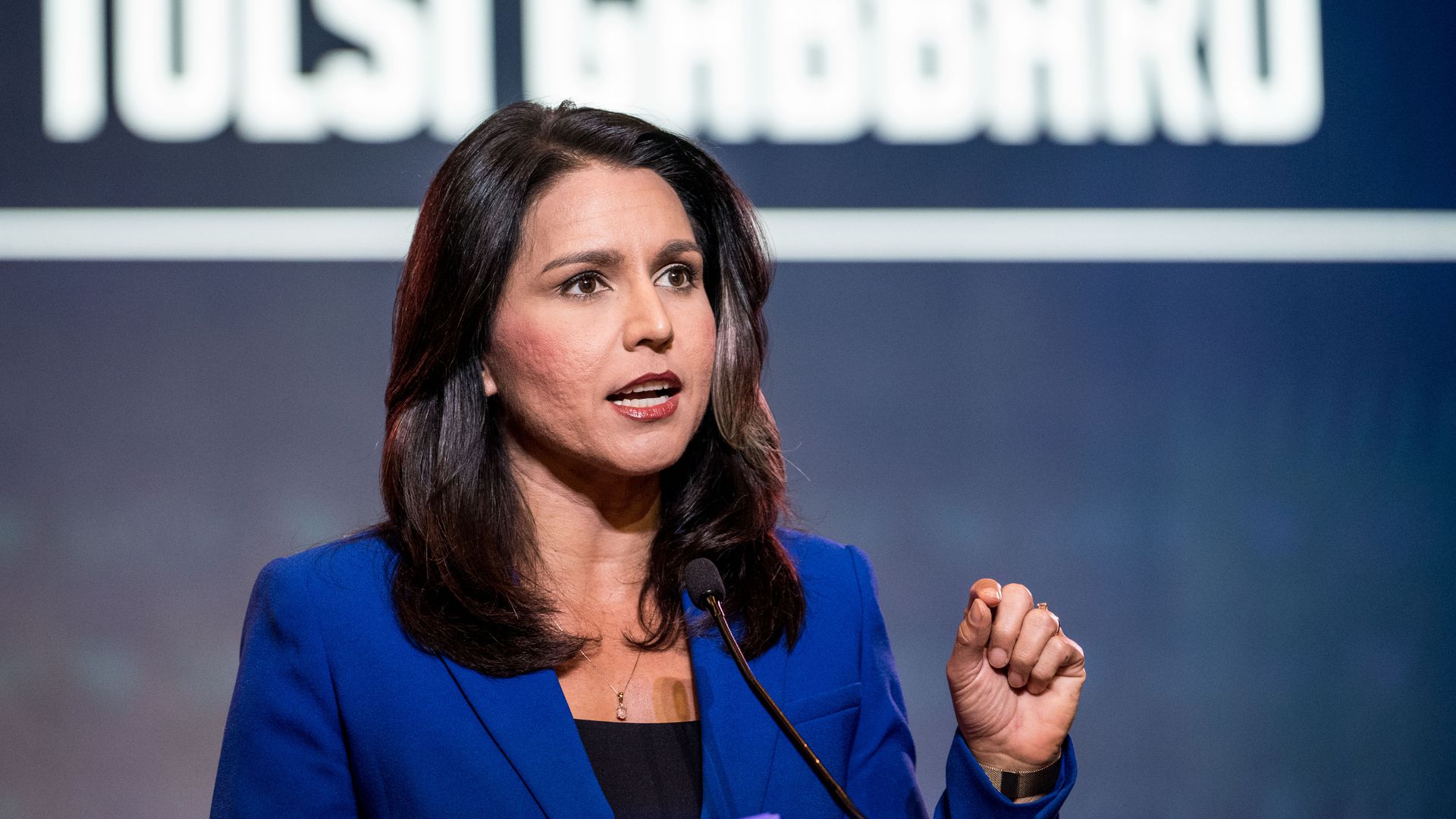Judge dismisses Tulsi Gabbard’s US$50 million lawsuit against Google

A few minutes every morning is all you need.
Stay up to date on the world's Headlines and Human Stories. It's fun, it's factual, it's fluff-free.
A federal judge dismissed a US$50 million lawsuit filed against Google by Hawaiian Representative, and current Democratic presidential candidate, Tulsi Gabbard on March 4.
Why did Tulsi Gabbard sue Google?
The lawsuit, submitted to a Los Angeles federal court in July 2019, argued that the technology company had violated Gabbard’s free speech rights when it suspended her campaign’s advertising account after the first Democratic debate in June.
According to The New York Times, Tulsi Now Inc., the campaign committee for Gabbard, reported that Google suspended the campaign’s advertising account for a total of six hours on June 27 and June 28.
The suspension, which occurred at the same time as interest in Gabbard following a strong debate performance vaulted her into first place among the Democratic candidates in Google searches, is alleged by her campaign to have harmed Gabbard’s ability to capitalize on increased voter interest in her candidacy.
The lawsuit claimed that Google hadn’t given “a straight answer” for why they suspended Gabbard’s advertising account and additionally alleged that emails from the Gabbard campaign ended up in Gmail’s spam folder at “a disproportionately high rate” compared to other Democratic candidates.
In addition to the US$50 million, Gabbard’s campaign wanted assurances that Google would not suspend the account again
“Google’s arbitrary and capricious treatment of Gabbard’s campaign should raise concerns for policymakers everywhere about the company’s ability to use its dominance to impact political discourse, in a way that interferes with the upcoming 2020 presidential election,” the lawsuit said.
And at the time of filing, Gabbard said, “This is a threat to free speech, fair elections, and to our democracy, and I intend to fight back on behalf of all Americans.”
But Google said that they had not intentionally tried to silence the Hawaii Representative. Instead, a company spokesman said that the automated system responsible for flagging suspicious activity on advertising accounts had “triggered a suspension and the account was reinstated shortly thereafter.”
According to The New York Times, which reviewed emails between Gabbard’s team and Google about the issue, the technology company temporarily suspended the campaign’s account to “verify billing information and policy compliance.”
Observers said this was the first time a presidential candidate had sued a major technology firm.
Judge dismisses lawsuit
The lawsuit failed to convince the judge, Stephen V. Wilson of the U.S. District Court for the Central District of California, that Google had infringed upon Gabbard’s First Amendment rights.
According to Judge Wilson, protections guaranteed under the First Amendment do not apply to Google because it is “an undisputedly private company.”
In his order granting Google’s motion to dismiss the suit, Judge Wilson wrote that the Gabbard campaign failed to show “how Google’s regulation of its own platform is in any way equivalent to a governmental regulation of an election.”
Who is Tulsi Gabbard?

Tulsi Gabbard is a 38-year-old who serves as the U.S. Representative for Hawaii’s 2nd congressional district. Elected in 2012, she is the first Hindi speaking member of Congress and the first Samoan-American member.
In 2002, before her election to Congress, Gabbard won an election to the Hawaii State Legislature. She was only 21 at the time.
While serving in the Hawaii State Legislature, Gabbard enlisted in the state’s National Guard and completed tours in Iraq and Kuwait.
In 2013, she was elected as the vice-chair of the Democratic National Committee (DNC).
She resigned from the DNC in 2016 to support Senator Bernie Sanders’ bid for president.
After backing Sanders in 2016, she announced her own presidential campaign in February 2019. Although she is one of the final candidates in the race, alongside Joe Biden and Bernie Sanders, she has rarely polled above 1 percent.
Due to a recent DNC rule change, she will not be appearing in the next Democratic debate in Phoenix on March 15.
[article_ad]
Have a tip or story? Get in touch with our reporters here!




Comments ()